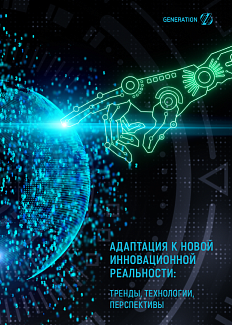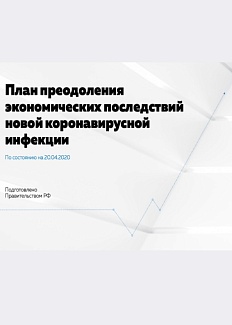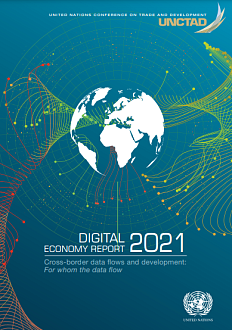Innovations industry is feeling the effects of the COVID-19 crisis too: many start-ups have ended up in a risk zone. Yet, there are those who managed to reshape their business in time to fit the current needs. Ekaterina Petrova, Managing Director of GenerationS Corporate Accelerator told of successful examples in its experience. Many of them will have representatives at the Science Fest International Festival of Science and Innovation that the Roscongress Foundation will hold on 24–26 July 2020.
Our accelerator turned 7 this year. In the course of these years, we have managed to incorporate around 16 thousand start-ups from over 30 countries and about 400 corporate and ecosystem partners into our infrastructure. According to the Corporate Startup Summit, GenerationS was the best corporate accelerator in Europe in 2018.
Our accelerator’s key focus is on joint projects with corporations for whom we scout start-ups for their immediate needs. In all the time that GenerationS has been around, we managed to collect a large enough pool of clients from various fields: from iron and steel to the pharmaceutical industry.
Among our graduates, as we call start-ups that passed acceleration programmes, there are some wonderful success stories. Many have managed to grow their business and even scale it to foreign markets. Naturally, the current situation did not pass by the innovations industry: we see many companies that are forced to suspend their innovation operations which, one way or another, are related to searching for and integrating leading technologies, as well as start-ups that struggle to keep their business in the present-day circumstances. However, we also have examples of projects that were not impacted by the crisis, as well as of those that managed to reshape their business to meet the current needs.
There is this Russian start-up Elementaree, for example, that provides no-contact home food deliveries and that was founded by Olga Zinovieva. This is a true success story, starting with the concept: wanting to create a food construction kit that would allow making delicious dishes while spending as little time as possible cooking, all the way to attracting financing. Of course, there were difficulties on the way related to finding investors in Russia. It was very difficult to find those who would believe in changing habits and changing views on food preparation. Yet, despite all the obstacles in the beginning, it is a well-functioning business that not only managed to stay afloat in the current situation, but quickly scaled up.
Another example is the Bioenergia start-up that developed the Wisesoil solution, which makes organic waste profitable thanks to the innovative technology for processing it. Right now, in light of the current circumstances, the company quickly launched a new line for producing antiseptics. The first batch of orders is close to being completed.
One of our graduates, the SIMKOMAT project team, developed a solution for remotely issuing sim cards. The largest global telecom operators are among its clients. Right now, the company also launched production of protection shields for healthcare providers. The shields are made on a 3D printer at the company’s production site in Izhevsk. At first, all personal protective equipment (PPE) was sent to Moscow hospitals, but later on the company decided to switch to servicing only the Udmurt Republic, where its second office is located. The step was taken for three reasons. First of all, there is very little PPE in the regions and it is much more needed there. Secondly, from the logistics point of view, it is much faster and cheaper to deliver to the region where the production is located. Finally, you can actually see how help is delivered to the recipients. At this time, the company has delivered over 500 protection shields to various hospitals, but the demand is growing daily. The company also purchases safety goggles, incubation containers and special respirators and gives them out to the hospitals that need them absolutely free.
In these circumstances, it is very important for the start-ups to be flexible, to analyse and understand what solution they can offer the market here and now, but not to forget their business’s original focus; after all, sooner or later, the crisis will be over and the processes will have to be re-built again. It is important to create a universal business model that works well both ways.
When we talk about large corporations, it must be emphasized that digitalization is gaining greater momentum: the corporations were forced to speed up the transfer of many processes to a digital format so as not to lose efficiency. The banking industry, which is the leader in digitizing processes, is a great example. Undoubtedly, financial technologies will stay in the limelight and will not lose any of their applicability after the crisis. As far as the other industries go, at this time it is much too early to say what solutions will be needed when the situation comes back to normal.
If you think on a larger scale, naturally large corporations will continue to work normally after the crisis, but the start-ups, unfortunately, are quite deep in a risk zone. This scenario cannot help but impact the innovation ecosystem as a whole; after all, it is precisely the start-ups that shape it. That is why comprehensive support for small and medium-size business is so important.
Throughout April we are holding a whole series of webinars both for corporations and for start-ups on the most urgent subjects related to business process restructuring, support of the innovation corporate culture, launching pilot projects remotely and so on. This communication format is very timely and useful to our target audience, where using speakers from various companies, we show that it is possible and give practical business advice.
Information
GenerationS is a platform for development of corporate innovations; the largest corporate accelerator in Russia and the CIS countries. It was established as a Russian Venture Company in 2013. GenerationS carries out comprehensive programmes for corporate development: intracorporate programmes for development of internal entrepreneurship; acceleration programmes for scouting and acceleration of external projects; and international programmes for employee training on methods of building and maintaining innovations based on leading global corporations.
As of today, the accelerator’s infrastructure includes around 16 thousand start-ups in over 30 countries and around 400 corporate and ecosystem partners. In 2018, GenerationS became the first Russian accelerator certified by the Global Accelerator Network (GAN) established by TechStars and the best accelerator in Europe according to the Corporate Startup Summit.






